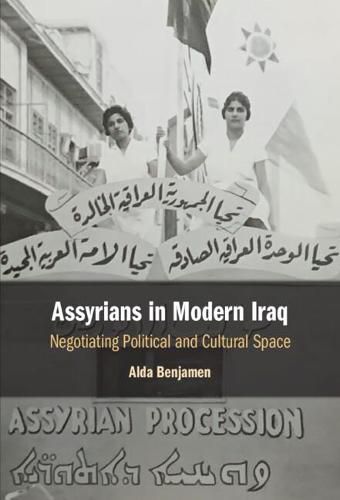Readings Newsletter
Become a Readings Member to make your shopping experience even easier.
Sign in or sign up for free!
You’re not far away from qualifying for FREE standard shipping within Australia
You’ve qualified for FREE standard shipping within Australia
The cart is loading…






Examining the relationship between a strengthened Iraqi state under the Ba'th regime and the Assyrians, a Christian ethno-religious group, Alda Benjamen studies the role of minorities in twentieth-century Iraqi political and cultural history. Relying on extensive research in Iraq, including sources uncovered at the Iraqi National Archives in Baghdad, as well as in libraries and private collections in Erbil, Duhok, and Mosul, in Arabic and modern Aramaic, Benjamen foregrounds the Iraqi periphery as well as the history of bilingualism to challenge the monolingual narrative of the state. By exploring the role of Assyrians in Iraq’s leftist and oppositional movements, including gendered representations of women, she demonstrates how, within newly politicized urban spaces, minorities became attracted to intellectual and political movements that allowed them to advance their own concerns while engaging with other Iraqis of their socio-economic background and relying on transnational community networks. Assyrian intellectuals not only negotiated but also resisted government policies through their cultural production, thereby achieving a softening of Ba'thist policies towards the Assyrians that differed markedly from those of later repressive eras.
$9.00 standard shipping within Australia
FREE standard shipping within Australia for orders over $100.00
Express & International shipping calculated at checkout
Examining the relationship between a strengthened Iraqi state under the Ba'th regime and the Assyrians, a Christian ethno-religious group, Alda Benjamen studies the role of minorities in twentieth-century Iraqi political and cultural history. Relying on extensive research in Iraq, including sources uncovered at the Iraqi National Archives in Baghdad, as well as in libraries and private collections in Erbil, Duhok, and Mosul, in Arabic and modern Aramaic, Benjamen foregrounds the Iraqi periphery as well as the history of bilingualism to challenge the monolingual narrative of the state. By exploring the role of Assyrians in Iraq’s leftist and oppositional movements, including gendered representations of women, she demonstrates how, within newly politicized urban spaces, minorities became attracted to intellectual and political movements that allowed them to advance their own concerns while engaging with other Iraqis of their socio-economic background and relying on transnational community networks. Assyrian intellectuals not only negotiated but also resisted government policies through their cultural production, thereby achieving a softening of Ba'thist policies towards the Assyrians that differed markedly from those of later repressive eras.